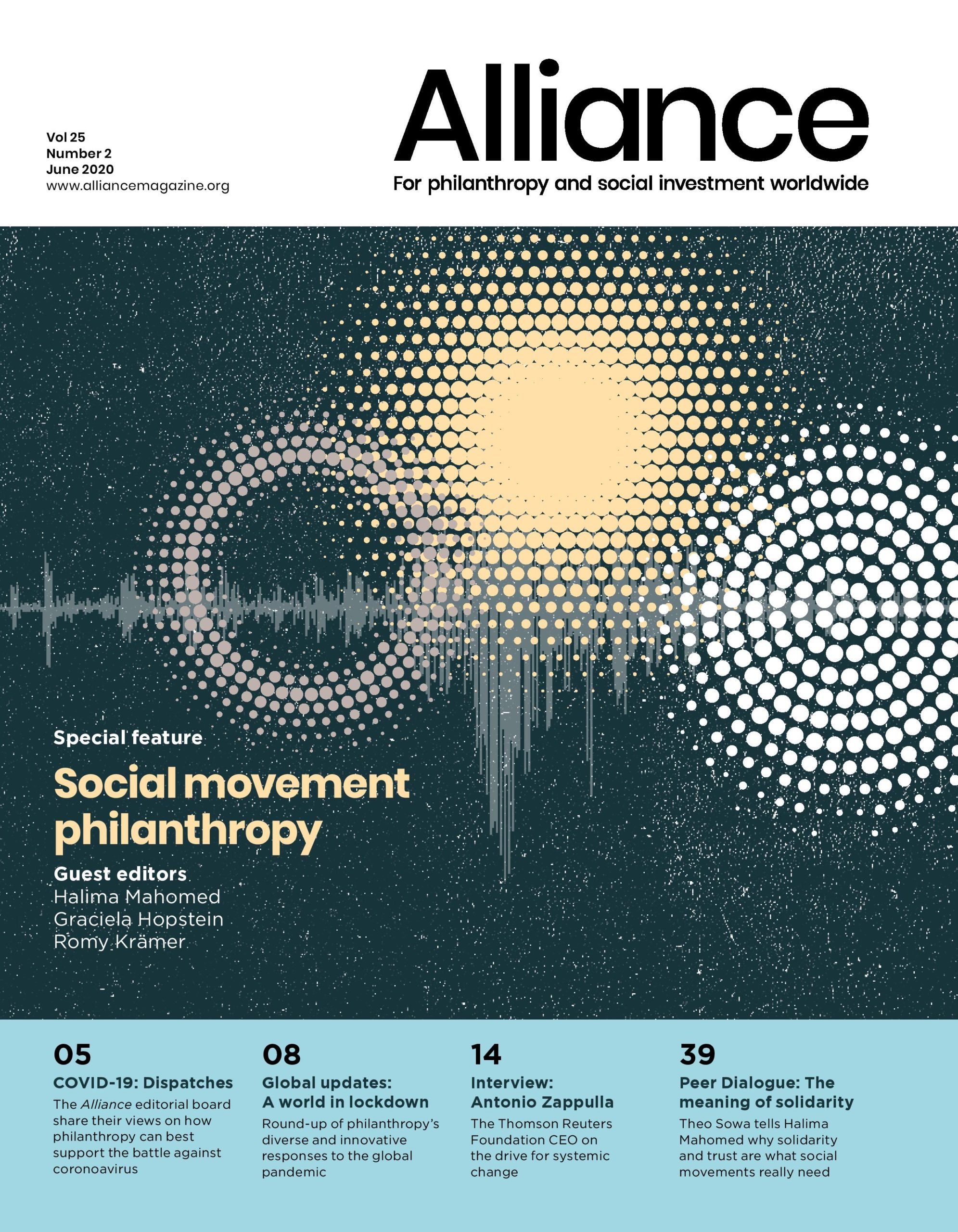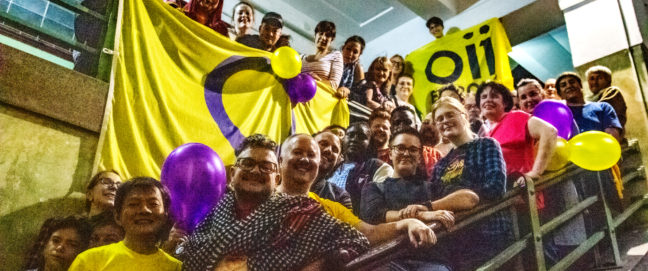What can philanthropy learn from the municipal movement when it comes to supporting social change?
Philanthropic foundations make an important contribution to the municipal movements’ development and their pursuit of broader social change goals. This article draws on conversations about philanthropic foundations and frontline activism with the aim of addressing philanthropy’s role in the current discourse of municipalism, in the ever-present search for a more radical change. While we reject the idea that philanthropy is not political, foundations can nevertheless support political and social change without being its leaders. We understand the tensions of funders wanting to be ‘outside’ and ‘objective’ to what they fund, yet we would rather welcome a more inclusive collaborative approach to analysing the issues and strategising around them. For that, we think progressive foundations can learn from municipalism in terms of how.
While we reject the idea that philanthropy is not political, foundations can nevertheless support political and social change without being its leaders.
Looking at what we have in common, many of the most empowering and transformative experiences of recent years, we believe that when people put aside identity squabbles, keep an international perspective and are able to self-organise as a community, they are able to create local impact that feeds into bigger social transformation. This is what we call municipalism: a network of local initiatives which increasingly appeals to movements and communities struggling for progressive social change. The international municipalist movement brings together an anti-evictions platform like la PAH in Barcelona, citizen-led electoral platforms such as Flatpack Democracy in the UK and community development cooperatives such as Cooperation Jackson in Mississippi. Because none of us want to win or become the one but a part of the whole, which is a prerequisite for change. We don’t believe in municipalism as the new big answer, but as a means of catalysing a common narrative and collaboration to jointly build the new world that is needed.
Namely, movements seek to challenge the power dynamic and provoke fundamental shifts in the capitalist system. While capitalism is increasingly dominant on the global level, effective opposition tends to be organised locally. Municipalism came from the urge to change the dominant narrative with a bottom-up approach. From the construction of a local ‘we’ it creates a new kind of collective identity that goes beyond patriarchal, colonial or capitalist forms. It challenges the conditions of people’s everyday lives and provides an alternative to accumulation. In doing so, it strives to reshape core values to embrace collaboration, dialogue, horizontality, inclusion of disadvantaged groups of all kinds, and it tends to focus on practical aspects rather than theoretical abstraction.
We don’t believe in municipalism as the new big answer, but as a means of catalysing a common narrative and collaboration to jointly build the new world that is needed.
With the intention of supporting radical transformation and social change, philanthropic foundations, we believe, could take a distinctive, more municipalist approach:
Use common language. Systemic change, for instance, a term common in the philanthropy world, is almost never used by social movements. For one thing, it has no mobilising power and, for another, it is very often untranslatable or meaningless in local languages. Thus, let’s create a common narrative which can inspire and connect people.
Support movement-building, foster flexible funding and take care about well-being. Achieving change requires political engagement. Yet, when the work of the movement becomes too political, foundations have a tendency to withdraw. Additionally, it requires long-term engagement, so labour and time are the key elements of organisational and political action. Financial stability and care are preconditions for activist work and key elements for the health of the movements. Foundations could therefore be the infrastructure needed to advance and sustain movements and the people involved, foster flexible funding and a deep understanding of the specific work and its inherent risks.
Allow trial and error. Foundations are very often oriented towards specific goals and measurable outcomes. Preference for such tangible successes means that it supports mostly short-term actions, which remedy some problems but leave the underlying structure intact. There is no formula that will catalyse and create fundamental change. It is a long-term effort that seeks commitment from all the actors involved, including foundations. We are all in this together.
Recognise intersectionality. By supporting only certain thematic fields, foundations exclude the possibility of unifying the struggles, and we miss the liberty to research, experiment and understand how processes overlap. The struggle over housing is a struggle connected to the reorganisation of health services, mobility, environmental issues and minority rights. The diversity of municipalist platforms has shown how in different contexts, issues are interlinked in related yet slightly different ways and that to tackle root causes and multiple oppressions we need broad alliances and cross-issue collaboration.
Municipalism creates a new kind of collective identity that goes beyond patriarchal, colonial or capitalist forms.
Practise peer collaboration. Provide your framework and reflection to your grantees. Because they are less directly engaged, philanthropy organisations often have a better overview of what is happening and what is needed in the movements’ field than the movements themselves. Sharing that information and thinking with those involved could generate bigger synergies. This would also give increased visibility to those with low international exposure.
Avoid exclusiveness. Given the political commitments to fostering better ways of living in the world, it is important to ensure that foundations do not simply produce better access and the sharing of resources among a group of ‘usual suspects’.
Break the power imbalance. Even the best-intentioned funders have a hard time giving up control, but collaboration and power-sharing bring foundations to a human scale, which drastically improves the relationships. By challenging the power concentration and getting to know each other, we enhance mutual trust, reciprocity and respect which builds a renewed structure of solidarity, cooperation and genuine care.
There is no formula that will catalyse and create fundamental change. It is a long-term effort that seeks commitment from all the actors involved, including foundations.
We have tried to be straightforward and honest in this article as we believe that is the right thing to do. We advocate for strengthening cooperation and mutual understanding.
Foundations – we want to exchange, debate, and fight hand in hand with you for the sustainable horizontal mutual-careful world that we all aim for. We believe a global, decentralised network of grassroots, stable-funded initiatives can catalyse it. Let’s build it together.
Iva Čukić is co-founder at the Ministry of Space collective from Belgrade and coordinator, FundAction.
Email: cukic.iva@gmail.com
Xavi Ferrer is a grassroots activist, co-founder of Barcelona en Comú and works for 99vanAmsterdam.
Email dosmasdoscinco@gmail.com
Twitter @dosmesdoscinc
The authors wish to thank Ana Méndez de Andés for her contribution to this article.





Comments (0)